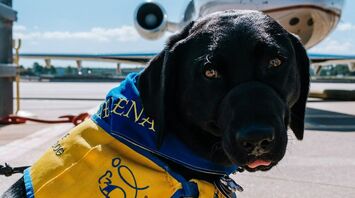The Hidden Cost of Service Animals on Planes

Airlines allow passengers to bring service animals on board without any additional fees, requiring only the completion of paperwork to attest that the animal is indeed a service animal. Although emotional support animals are officially no longer permitted, the system largely operates on an honor basis, resulting in numerous animals still traveling in the cabin.
Despite the rule change, many passengers continue to bring emotional support animals, often struggling with the required documentation. This leads to a common scenario where animals encroach on the space of fellow passengers, raising questions about fairness and responsibility.
The Americans With Disabilities Act (ADA) mandates that businesses and employers bear the cost of making accommodations for individuals with disabilities. This ensures inclusivity without burdening those with disabilities. However, air travel falls under the Air Carrier Access Act (ACAA), which places the burden of accommodating passengers with disabilities or those claiming disabilities on their fellow travelers rather than the airlines.
Airlines are required to provide wheelchairs and other assistive devices, but when it comes to space, the cost is often borne by the passengers seated next to those with service animals. This can be particularly frustrating in the already cramped conditions of economy class.
There are proposed alternatives to address this issue. One option is for passengers with service animals to pay for additional space if needed. Another is for airlines to cover the cost of an extra seat, aligning with how other sectors handle accommodations. However, this raises concerns about fairness, especially with emotional support animals, where the legitimacy of the need is sometimes questionable.
Ultimately, the presence of service animals on planes, whether genuinely needed or not, affects all passengers. While legitimate service animals provide essential assistance to those with disabilities, the system’s current implementation often leads to uncomfortable situations and raises broader questions about equity and responsibility in air travel.



















